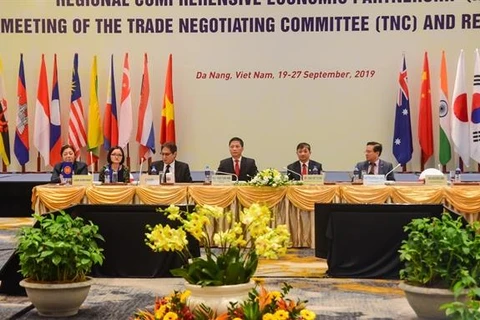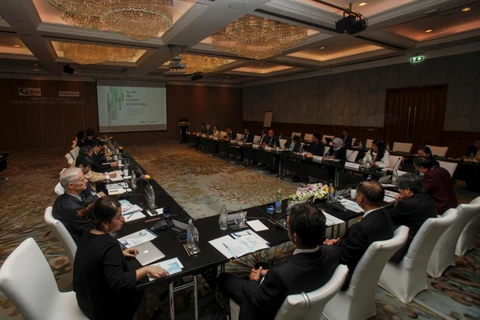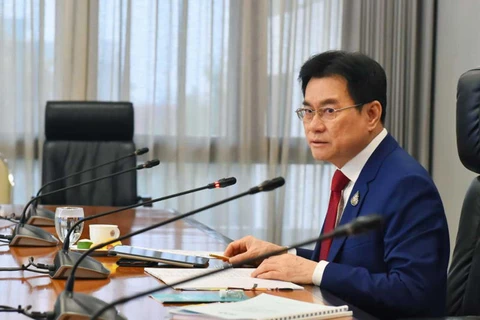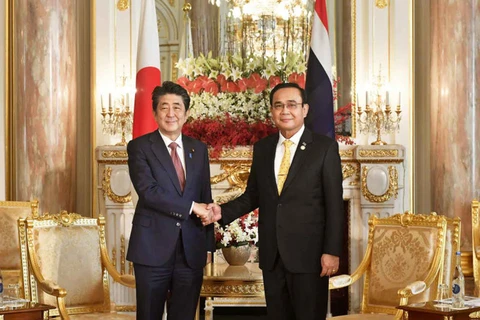 Iman Pambagyo, Indonesian Trade Ministry’s director general for international trade negotiations. (Photo: alfijakarta.com)
Iman Pambagyo, Indonesian Trade Ministry’s director general for international trade negotiations. (Photo: alfijakarta.com)Jakarta (VNA) – Indonesia’s Ministry of Trade is expecting that the Regional Comprehensive Economic Partnership (RCEP), a landmark trade deal between ASEAN countries and six major economies, will be signed in November 2020.
The Trade Ministry’s director general for international trade negotiations, Iman Pambagyo, said the finalisation of the pact, including dealing with technicalities like translation, will happen in the first quarter of next year.
It is hopeful that the finalisation process will be done for the agreement to be inked by ministers in November next year, followed by the ratification in each country, Iman told a press conference earlier this week.
The RCEP Trade Negotiating Committee (TNC) will report results of the negotiation to ministers of participating countries in early November this year, he said.
The RCEP is a free trade agreement between the Association of Southeast Asian Nations (ASEAN) and its six free trade agreement partners – China, Japan, India, the Republic of Korea, Australia and New Zealand. Negotiations on the pact began in 2012 and were initially expected to be concluded two years later. However, the conclusion has been delayed for many times.
Trade negotiators from the 16 countries have locked horns over issues concerning the pact's 20 chapters for several years. Six remaining chapters have yet to be agreed on, including trade competition rules, and measures to mitigate the negative side-impacts of RCEP.
Once signed, the agreement will create the largest free trade area in the world, housing about 3.5 billion people and accounting for 30 percent of global GDP./.
VNA























